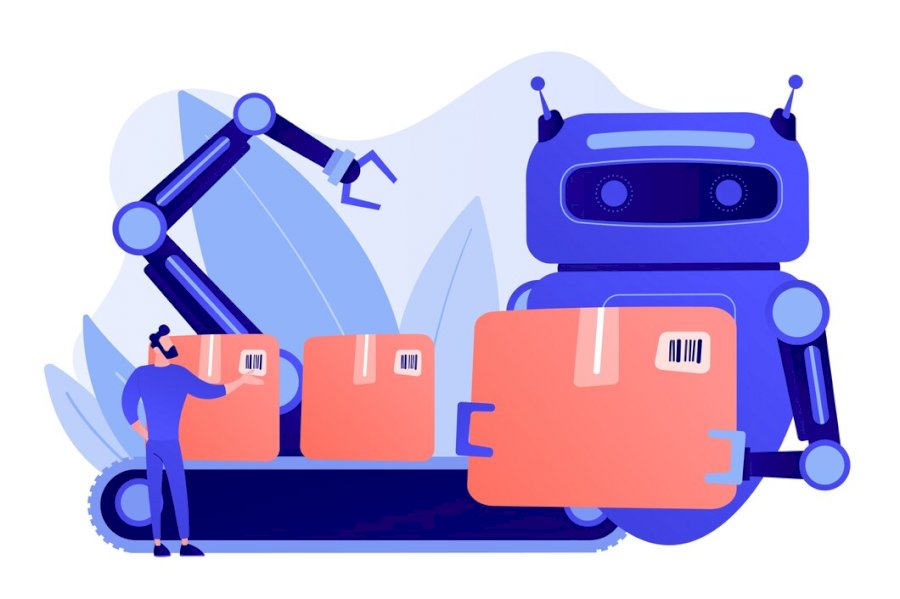Companies that adopt AI can gain a significant competitive advantage in the market and improve their ability to meet their customers' needs. Intelligence for transportation and logistics. Logistics services and transportation are two key areas in the world of commerce and distribution. These are increasingly important in the digital age.
In case you're not sure, Artificial Intelligence (AI) is a technology that has had a significant impact in these areas, enabling process automation. It has also helped improve operational efficiency and accuracy.
Route optimization and delivery planning
AI algorithms can analyze large amounts of data, such as traffic information, weather conditions, and the most efficient routes. The goal of implementing this approach is to find the best route for a specific type of transportation. This not only saves time and money, but also reduces greenhouse gas emissions and improves sustainability.
Favorable for inventory management and quality control
With artificial intelligence It can analyze large data sets to identify patterns and trends in product demand. This helps companies maintain optimal inventory and reduce costs associated with excess inventory.
Furthermore, this technology can be used for quality control, allowing for early identification of defective products and avoiding wasted resources and time.
Increase process automation and reduce errors
AI can automate a range of tasks, from package tracking to supply chain monitoring, helping to reduce human error and improve efficiency.
Additionally, it can be used for early detection of process problems. This allows for immediate correction and reduction of associated costs in logistics services.
Since AI allows machines to learn autonomously through experience, in logistics and transportation, it is used to predict product demand and thus optimize transportation routes, as well as improve the efficiency of logistics processes.
The impact of Artificial Intelligence on international trade
In case you weren't clear, the future of cars and the transportation market is changing the game. Artificial Intelligence is transforming the way we design and manufacture cars, and this is impacting the automotive industry.
AI is a technology that is transforming the way we live, work, and interact with the world around us. In the automotive industry, artificial intelligence is having a significant impact on how we design, manufacture, and market cars. It's also important to note how AI is impacting the automotive industry.
This technology also benefits automotive design and manufacturing, as AI models can analyze and optimize vehicle designs, potentially reducing the time and costs associated with design and manufacturing. It can also help companies identify potential problems during the design process, which can improve the quality of the final product.
Benefits of AI for business vehicles that offer logistics services
Companies that offer logistics services also prioritize their investments and therefore seek tools to help them with this. Some benefits of AI in this process include:
-
User experience: AI-based infotainment systems can personalize the experience to the driver's habits, and can also help find more efficient routes and avoid traffic jams.
-
Improved safety: AI-based automatic braking and collision detection systems can help prevent accidents. It can also reduce the severity of accidents and is used in driver fatigue warning and lane monitoring systems to prevent accidents caused by distracted or tired drivers.
-
Cost reduction: Artificial Intelligence- based production systems can optimize the manufacturing process and reduce errors. It's also possible to detect production defects, helping companies identify and correct quality issues before they reach the market.
AI is used in traffic management and navigation systems to find more efficient routes and reduce travel times, dramatically improving the quality of logistics services .
Artificial Intelligence is rapidly transforming the logistics industry.
The influence of AI on the automotive industry has significant implications for retail, logistics, and distribution. Some ways AI is impacting these areas include:
-
Changes in business models: AI-based logistics services are changing the way people use vehicles. They are also enabling companies to offer new services, such as predictive maintenance and fleet monitoring.
-
Greater efficiency in logistics: AI-based fleet management systems can optimize vehicle distribution and reduce transportation costs.
-
Greater customization in distribution: AI systems can analyze customer data to determine their preferences and needs, allowing companies to offer more personalized vehicle options tailored to each customer's needs.
The influence of Artificial Intelligence extends to areas such as commerce, logistics, and distribution, where it is changing business models and improving efficiency, as well as personalizing services.
It's important for logistics professionals and those in these fields to stay abreast of advances in AI. By staying up-to-date, they will avoid impacting logistics services. It's time to take advantage of the opportunities this technology offers.






